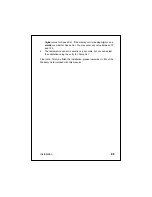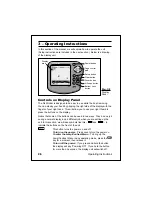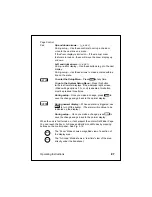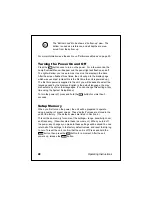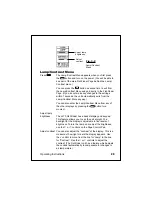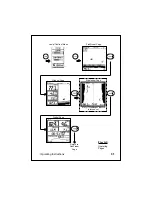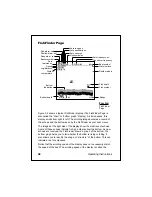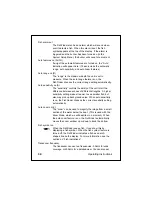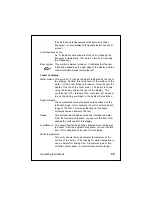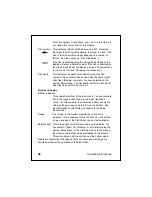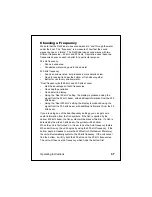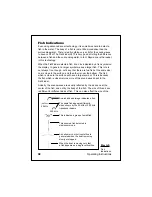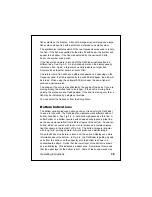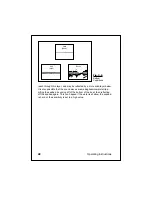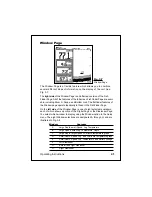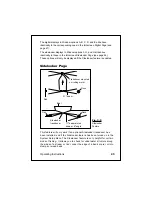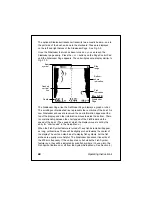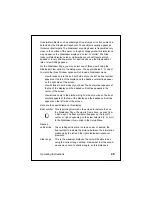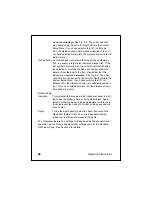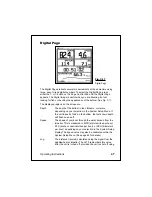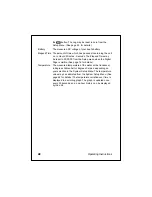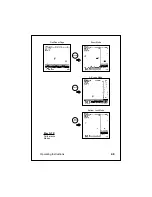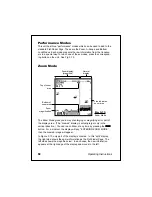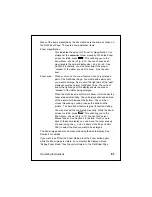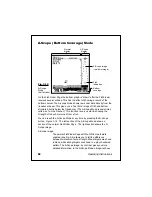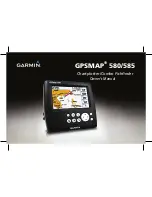
39
Operating Instructions
fish symbols on the display. A fish with a large air sac will produce a large
fish symbol, while a fish with a small sac will produce a small symbol.
The
symbol
also
indicates
which
of
the
two
frequencies
was
used
to
locate
the fish. If the fish was spotted by the wide 50 kHz beam, the symbol will
appear to be hollow. If the fish was detected by the narrow 200 kHz
beam, the symbol will be solid.
If the fish symbol feature is turned off, the FishFinder indicates fish in a
different way. See Fig. 3-5. An arch-shaped mark on the display usually
indicates a fish. Again, a larger arch usually indicates a larger fish.
Several arches together show a school of fish.
The return from a fish will have a different appearance, depending on the
frequency used. If a fish is spotted by the wide 50 kHZ beam, the arch will
be broad. When using the narrower 200 kHz beam, the same fish will
produce a narrower arch.
The shape of the arch is also affected by the speed of the boat. If you are
moving slowly, the arches tend to be longer. If the boat is moving more
quickly, the arches are short and peaked. If the boat is moving very fast, a
fish may be indicated by a single vertical line.
You can select the frequency from the Setup Menu.
Bottom Indications
The bottom usually produces a strong echo, so it is easy for the FishFinder
to see a lot of detail. The FishFinder can indicate many different kinds of
bottom conditions. See Fig. 3-6. A hard bottom appears as a thin line. A
softer bottom or a bottom covered with seaweed will produce a wide line,
as the sound waves reflect from different layers of the bottom. An uneven
bottom which is covered with rocks or coral produces a complex display
like that shown in the last part of Fig. 3-6. The bottom image is irregular,
with long “tails” pointing upward. A wreck produces a similar image.
When the White Line feature is turned on, the unit can display even more
information about the bottom. In Fig. 3-4, the FishFinder is getting a good
echo from the bottom, so the upper layer of the bottom is shown in a
checkerboard pattern. Notice that the lower layer of the bottom is shown
as a solid display. This indicates a weaker echo. Sometimes this means
that the upper layer of the bottom is soft. Some of the sound waves may

